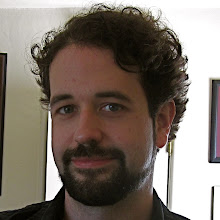Still, this chapter had a whimsical but sobering reminder in it: To whatever extent you're inclined to do something, you're probably going to overdo it to that extent.
Teachers who love to lecture do too much of it; teachers who resist it do too little. Teachers who love ambiguity make discussions needlessly confusing. Teachers who are linear and task-oriented often intervene too much in a seminar and can cut off fruitful inquiry. Teachers who love to coach sometimes do too many drills and overlook transfer. Teachers who love the big picture often do a poor job of developing core skills and competence. The upshot? Beware of self-deception! (p. 242)
For myself, I know that I'm both a big-picture thinker and a lecturer: I like imaginative tangible projects, and I also like to hear myself talk. I have to be careful throughout the coming year to save the talking for where it will do the most good, and to teach the skills necessary for the students to do the tasks I want them to do -- something that Victoria already warned me about. Happily, our 45-minute lessons on Wednesdays give me a nice time block when I can focus on skill-oriented instruction; it's too short a period for any but the simplest experiments and demonstrations, but it's a good length for introducing concepts like, say, the scientific method, or how to conduct an interview for the students' ecological awareness project.

1 comment:
Self-knowledge= good. When we think about how much we want students to be aware of their own learning style, it seems like a logical progression to want and expect teachers to be aware of their own teaching style. Unfortunately, there are many "logical progressions" that never actually progress in the world. I think it is great that you are prepping yourself to be aware of your own teaching "traps" before you teach. I tended to be much more a fan of student discussion but I know that sometimes I didn't give students enough structure to help them understand how the conversation we just had WAS learning and not just a bunch of yapping. (I mean, if it was clear to me, why wouldn't it be clear to everyone else, right? ;-)
Post a Comment